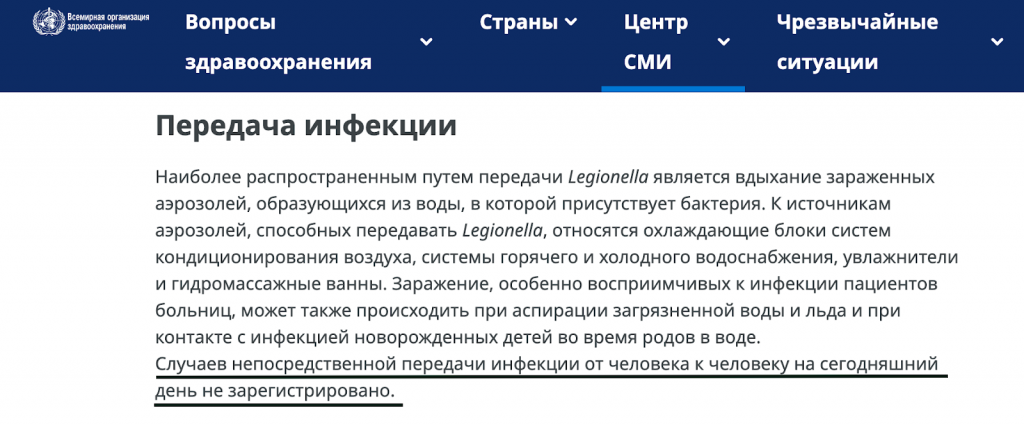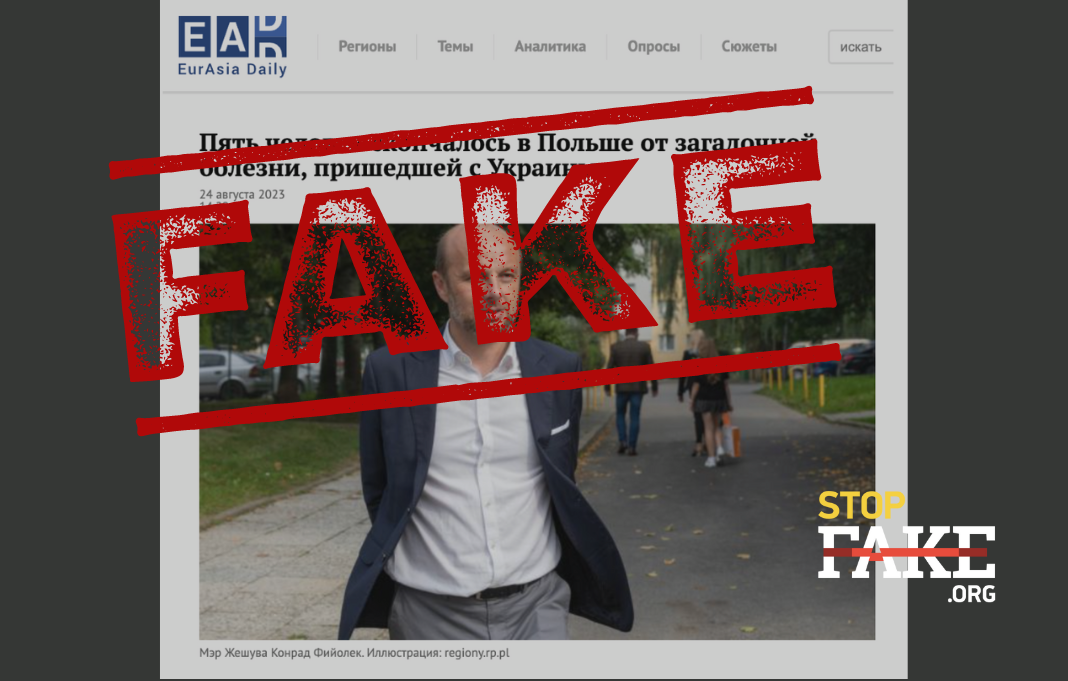The propagandist claim that Ukrainian refugees are the source of the bacterial infection is completely unfounded. It is yet unknown what exactly became the source of the infection in Rzeszów. Moreover, the World Health Organization reports that no cases of direct transmission of infection from person to person have been registered to date. Poland’s Internal Security Agency is investigating whether this legionellosis outbreak could have been a sabotage.
Some Russian media, as well as anonymous Telegram channels, are spreading information that the outbreak of the dangerous legionellosis disease in the Polish city of Rzeszów is linked to Ukrainian refugees living in a local aid center.
“Several employees of the Ukrainian refugee aid center died of legionellosis infection in Rzeszów, Poland. It is obvious that the source of the bacterial infection was imported from Ukraine,” these reports say.

Since mid-August, an outbreak of legionellosis has been recorded in Rzeszów, a Polish city located 100 kilometers from the border with Ukraine. As a result of an outbreak, eight people have already died and more than 100 have been infected. Moreover, on August 26, the first case of legionellosis was detected in the Lublin Voivodeship. The infection most likely occurred in Rzeszów.
Legionellosis is a general term for pneumonic and non-pneumonic forms of Legionella infection. It affects lung tissue and is characterized by the development of a severe form of pneumonia. The disease is most often accompanied by fever, general intoxication, damage to the lungs, central nervous system and the gastrointestinal tract organs.
The propagandist claim that Ukrainian refugees are the source of the bacterial infection is completely baseless. It is currently unknown what became the source of infection in patients from Rzeszów. Earlier, the head of the local government Eva Leniart used to claim that the infection most likely occurred due to water in the water supply system. However, the conducted analyzes did not reveal an infection in the city’s water supply. Nevertheless, the city authorities still decided to disinfect more than 1,000 kilometers of pipelines in Rzeszów with chlorine and ozone.
Moreover, the World Health Organization (WHO) reports that no cases of direct transmission of infection from person to person have been registered to date. The most common route of transmission of Legionella is inhalation of contaminated aerosols produced from water in which the bacterium is present. Infection usually occurs through air conditioning systems, humidifiers, hot tubs, or faucets and showers that are not used often. It should also be noted that drinking water containing bacteria can lead to infection in some cases.

In a comment to the Polish publication Wyborcza, the epidemiologist of the University Clinical Hospital in Rzeszów, Artur Harmat, said that the discovery of Legionella surprised them a lot, because it is a rare disease. “The bacterium is widespread, but infection is rare,” the doctor noted.
Due to these circumstances, the Polish Internal Security Agency is investigating whether the outbreak of legionellosis in Rzeszów could have been a sabotage. Since the start of Russia’s full-scale invasion of Ukraine, the city has become a key transit point for humanitarian aid and military supplies. As Bloomberg reports, American soldiers are stationed here, as well as Patriot air defense systems. The city is also a transit point for many officials on their way to Kyiv.
Deputy Minister-Coordinator of Poland’s special services, Stanislaw Zharin, wrote on Twitter that the Security Agency’s actions are aimed at excluding any external influences that could lead to the spread of the disease.
Previously, StopFake journalists refuted the disinformation that after the influx of Ukrainian refugees in Poland, an increase in HIV incidence occurred.





